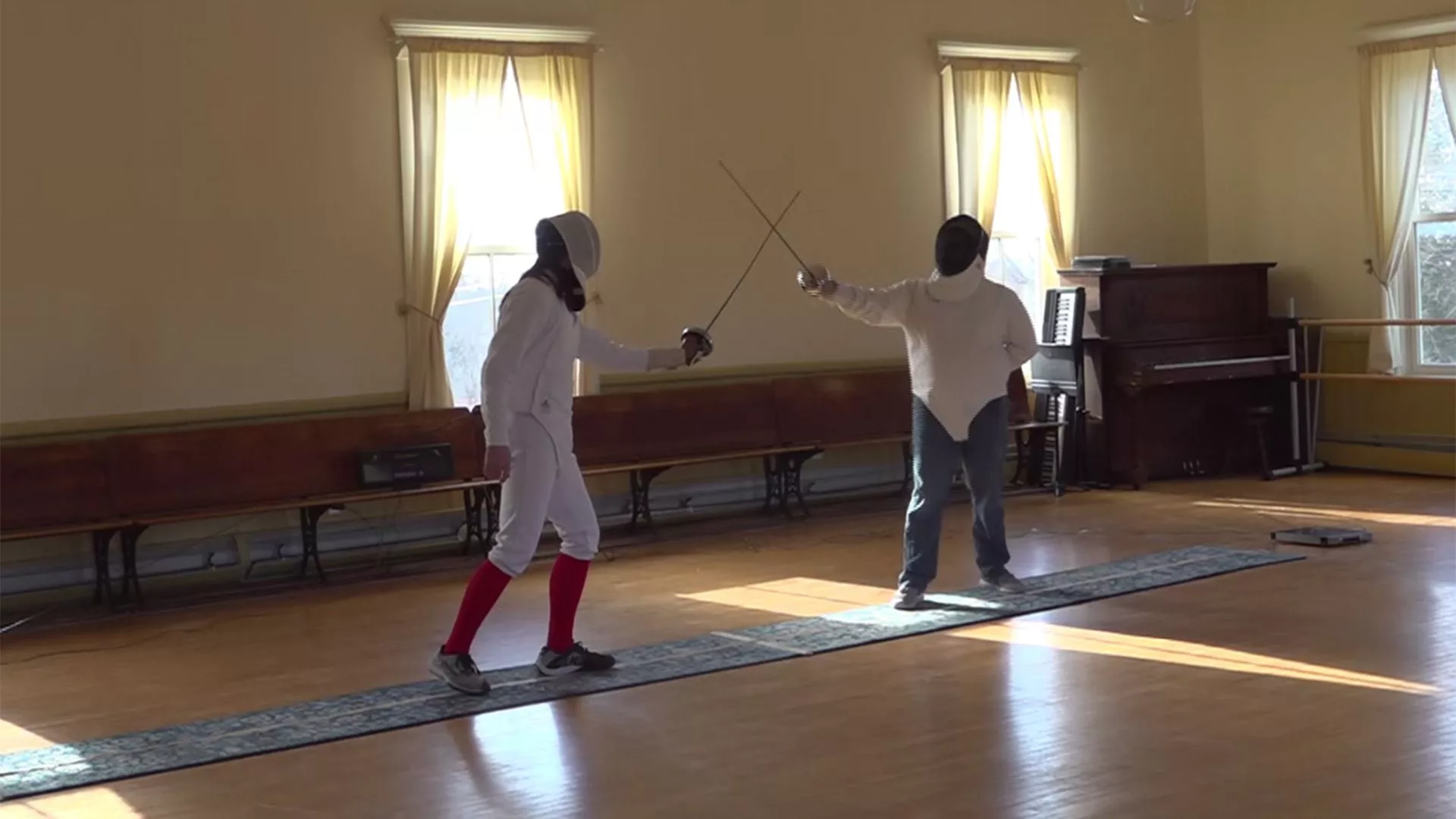
RUTLAND, Vt. (WCAX) – A first-of-its-kind program for people with hearing and visual impairments has come to Vermont. It means dozens of Vermonters with dual hearing and visual impairments are now navigating life with the help of support service providers.
Monday’s for Josh Tabor and Morris Hier often means a 45-minute drive from Rutland to Fencing class in Cornwall. Anyone passing by might see two buddies out for a cruise — and they wouldn’t be wrong — but it’s also a lot more than that.
Tabor has visual and hearing impairments and Hier is his support services provider, or SSP, and helps with tasks Tabor he can’t do on his own. Tabor, who’s worked with Hier for two months, says the partnership is life-changing. “It gives me freedom to be able to do things that I would never be able to do. Such as fencing, such as going up to my friend Dave’s, such as going to Fort Ticonderoga, and eventually hopefully be able to find work — that’s my primary goal,” he said.
The pair connected through a pilot program launched in November by the U.S. Department of Health and Human Services, Administration for Community Living with the help of VANCRO Integrated Interpreting Service. Using a $120,000 grant, VANCRO paired 31 Vermonters with dual hearing and visual impairments with SSPs. It’s the first program of its kind in the state.
Providers went through a two-day training to learn how to provide everything from transportation to information about surroundings so program participants can make informed decisions.
Hier says the program is a gateway to a more enriching life for both program participants and providers. “I can feel good about it at the end of the day. I feel like I accomplish something and I help somebody out. That makes me feel pretty good to be needed at 70, you know? In our society it’s not always like that,” he said.
But the program has an expiration date. VANCRO’s Cory Brunner says unless permanent funding is secured, the program will end in September. “This gives them choice. It gives them autonomy, it gives them independence. And to have that for a year and then it just goes away, I just can’t honestly imagine how devastating it will be for some of the participants that we support,” Bruner said.
There’s hope that stories like Tabor’s could inspire a permanent program. Fred Jones with the Vermont Division for the Blind and Visually Impaired says the program could show the state the immense benefits of SSPs and secure permanent funding. “It’s hard to fund a program when you’re not sure who’s going to use it. And that’s basically what we’ve been able to do — is to show that this can have a huge impact on someone’s life,” he said.
Brunner says the demand is there for a permanent program. Three people are already waitlisted for providers and Vermont’s aging population needs more services for vision and hearing loss.
For Tabor, reverting to life without a provider is unimaginable. “I hope and pray that we can get this in a permanent thing. So that way, we can continue to live the way that we live in a rural state,” he said.
The Legislature this session is expected to consider a measure that would extend the program.







